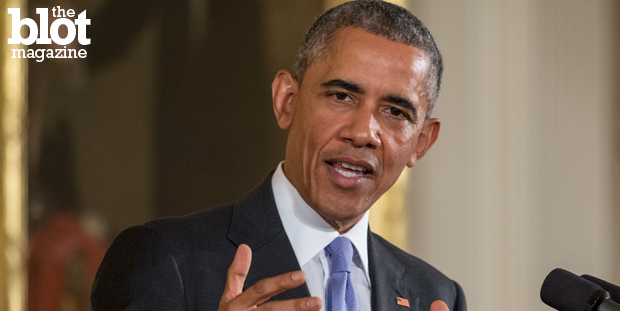
The Iran nuclear deal announced Tuesday was a smart, savvy diplomatic move by President Barack Obama, despite the terrible doomsday scenarios painted by Republicans and Israeli Prime Minister Benjamin Netanyahu that are meant to frighten people.
At a press conference Wednesday, Obama calmly laid out the scenario where the world was faced with a difficult choice: continue to sanction and isolate the Iranians while Israel continues to stockpile nuclear weapons or make a deal that could avoid a possible nuclear war in the Middle East. If no deal have been reached, thousands upon thousands of more American lives might have been needlessly lost in a future war and invasion of Iran. Waiting on our hands or continuing tough talk about not allowing Iran to build nuclear facilities for peaceful purposes could have eventually confronted our country with that possibility.
Congress now has 60 days to review the agreement, and the president has said he will veto any legislation that blocks the implementation of the deal. To go into effect, Iran’s Supreme Leader Ayatollah Ali Khamenei must also approve. Khamenei was absent from negotiations the past 20 months, but posted on his website Tuesday evening that he appreciated the efforts of Iran’s nuclear team and was happy with their hard work and serious efforts.
Highlights of the agreement include Iran agreeing to reduce its centrifuges — the method of producing high-grade uranium for nuclear warheads — by two-thirds, placing a ban on enrichment at several key facilities and the imposition of a limit on uranium research and development at a key facility. Without these accords, Iran would likely have continued to enrich uranium under no inspections at all, further accelerating what would surely become a 21st century arms race.
The Islamic state also must pass certain benchmarks for the economic sanctions to be lifted. And if those are not reached within certain timeframes, the international community, through the U.S. and United Nations, will reimpose them. The sanctions, which have limited what Iran can import and how much of its oil the country can sell, have had serious deleterious effects on the country. And what have they wrought? They have denied the Iranian people a basic standard of living and beget a more isolated and impoverished nation that could very well be ready to explode. In short, nothing good for the U.S. — and an even more destabilized Middle East.
Lifting the economic sanctions is also the best way to give the people of Iran hope. If and when the economy improves, the people of Iran will become less isolated, will be politically radicalized less easily and eventually will want to adopt the lifestyles or at least standards of living that we enjoy in the West. A rising economic tide may not lift all boats, but as its economy improves, more hope for the future and of a better life for future generations could result.
Critics of the deal will point to it allowing Iran more “breakout time” — the amount needed to produce a single nuclear bomb — in its latter years should the country break the deal. Currently, experts estimate that timeframe to be about two to three months and with the deal’s reductions in place, it would extend to a year.
This was a principled, brave and bold first step on a long road of diplomacy that will not end when Obama leaves the White House. What the president has done with the agreement is set the stage for his successor to engage even more with Iran.
Animosity and finger pointing have wrought a hungry, dissatisfied Iran. Engagement through appropriate diplomacy has already opened up the country to compromise.
In 10 or 20 years, this agreement will not be viewed as a huge mistake in an eventual road to war. It will be seen as an initial step in what became a fruitful and long-lasting relationship between Iran and the rest of the world.
Noah Zuss is a reporter for TheBlot Magazine.





